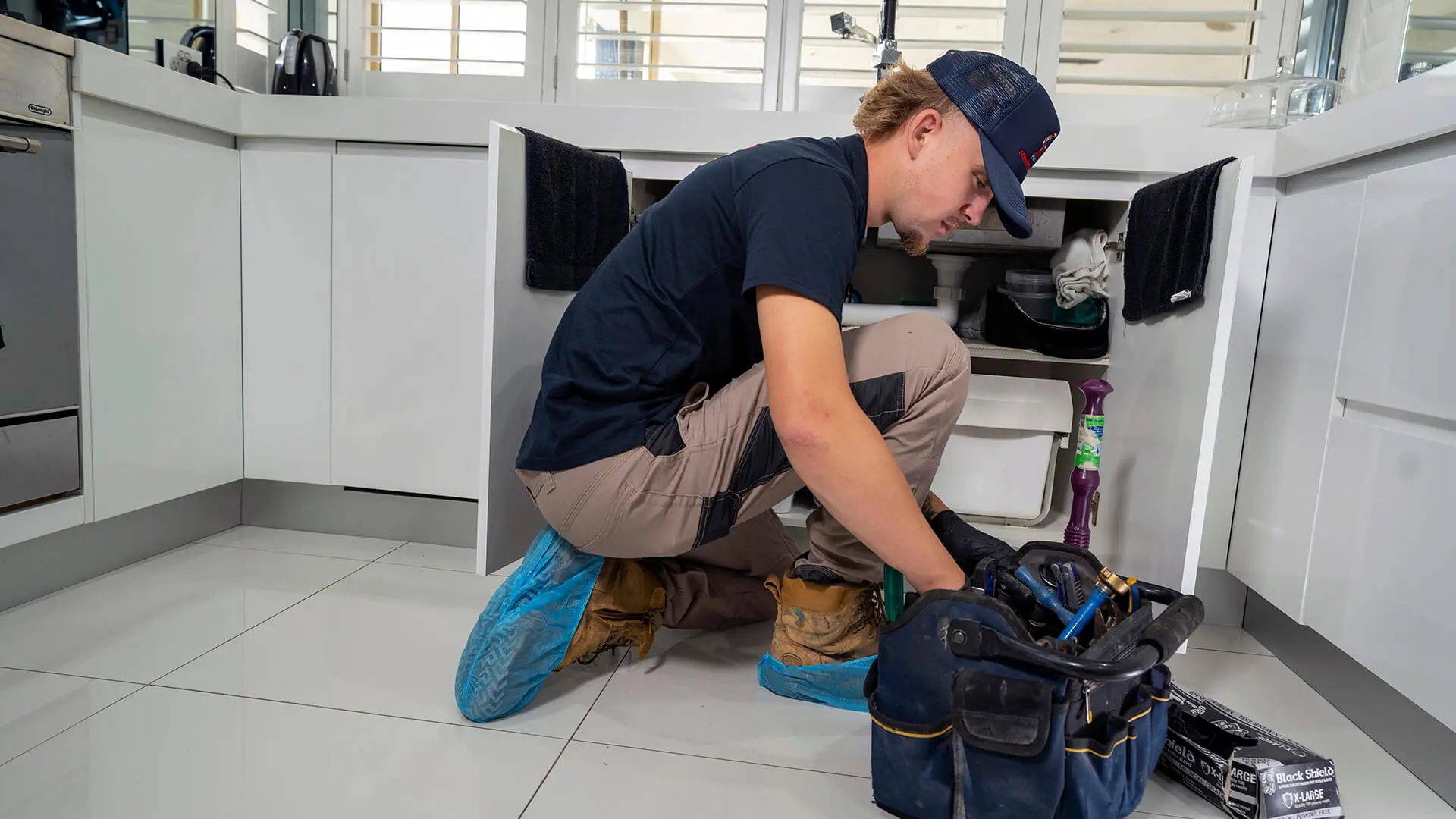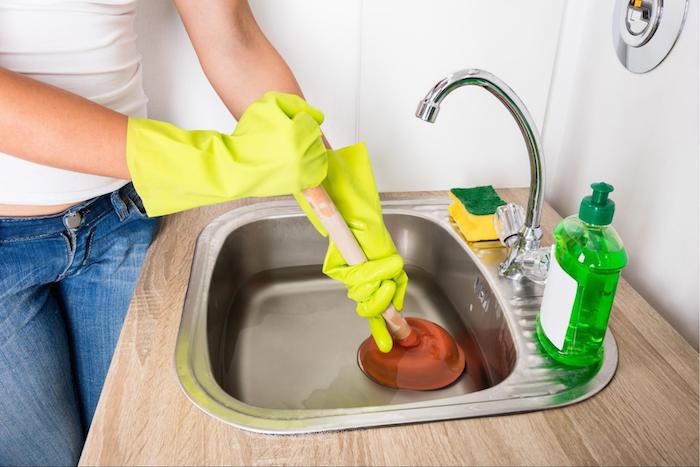Best Strategies For Repairing A Slow-Draining Sink
Best Strategies For Repairing A Slow-Draining Sink
Blog Article
The writer is making a number of great pointers on 4 Tips to Fix a Slow Draining Sink in general in this content in the next paragraphs.

Intro
We have actually all existed: You're cleaning your teeth or cleaning your hands, and you discover the water pooling in the sink. Instead of rapidly swirling down the tubes, it lingers, turning your once-refreshing morning routine right into a mini swamp scene. A slow-draining sink isn't just bothersome; it's commonly an indication of bigger pipes issues hiding beneath the surface. The good news is that the majority of slow-draining sinks can be taken care of with a little know-how, a few basic tools, and some perseverance. All set to tackle this job head-on? Let's roll up our sleeves and dive right in.
Comprehending the Sources Of a Slow-Draining Sink
Prior to you begin poking around in your pipelines, it assists to recognize what might be triggering the slowdown. Comprehending the root cause makes it less complicated to choose the right repair.
Devices and Products You'll Need
The right tools make all the distinction. Fortunately, you won't need a totally stocked plumbing professional's van to finish the job.
Step-by-Step Overview to Fixing a Slow-Draining Sink
Now, allow's get into the nitty-gritty. This detailed procedure will certainly lead you via basic methods to restore your sink's drain.
Step 1: Get Rid Of and Clean the Stopper
Typically, the stopper (that small plug you lower to obstruct water) is the very first offender. Remove it very carefully and wipe any type of hair or gunk trapped around its base. Wash it extensively before putting it back in place.
Step 2: Use a Bettor to Displace Particles
Got that bettor prepared? Position it over the drain and offer it a couple of firm pumps. The concept is to produce suction that can loosen any blockage. If you see bits of particles floating up, you get on the best track.
Action 3: Attempt a Drain Snake or Cord Wall Mount
If the bettor does not do the trick, it's time to draw out the drainpipe snake. Delicately feed it into the drain and spin as you go. You could feel some resistance-- that's likely the obstruction. Keep twisting and drawing until you eliminate the obstruction. If you do not have a drain snake, a corrected the alignment of cord hanger can operate in a pinch.
Step 4: Apply a Do It Yourself Drainpipe Cleanser
A natural cleaner made from baking soda and vinegar can break down recurring gunk. Put half a cup of baking soft drink right into the drainpipe, adhered to by half a mug of vinegar. Let it fizz for about 15 minutes, then flush with warm water. This chain reaction commonly does wonders for small clogs.
Tip 5: Rebuild and Examine the Sink
Put whatever back together and run the faucet. Does the water currently swirl down the tubes at a decent rate? If yes, give on your own a pat on the back. If not, don't despair-- there are still a couple of even more tricks up your sleeve.
Important Tools for Do It Yourself Repairs
A bettor is your go-to beginning point. A little, sink-sized plunger creates suction that can displace small obstructions. For more relentless obstructions, a drainpipe snake (often called a plumbing professional's auger) works wonders. A set of gloves, a flashlight, and perhaps a set of protective goggles are additionally useful.
Recommended Cleansing Solutions
Light dish soap and hot water can assist break down greasy accumulation. A combination of baking soft drink and vinegar is a reliable natural remedy, and chemical cleansers offer a more environment-friendly strategy. Keep chemical drain cleansers as a last resource, as they can be harsh on your pipes.
Common Culprits Behind Slow Drainage
So, what's clogging points up? Commonly, it's a mixture of everyday particles-- assume hair, soap residue, toothpaste residue, and leftover food fragments. Gradually, these little bits collect and hold on to the pipeline walls, progressively tightening the passage and making it harder for water to pass through. In many cases, mineral deposits from tough water can additionally add to the gunk, producing the perfect tornado for persistent obstructions.
When is it Time to Do Something About It?
If you see the water draining pipes slower than common, it's an excellent idea to interfere sooner rather than later. Waiting also long might lead to finish obstructions, unpleasant smells, or even pipe damage. If the water takes more than a couple of secs to clean out after shutting off the tap, consider it a red flag and prepare yourself to place on your DIY hat.
Safety First: Precautions and Preparations
Prior to you launch into unclogging setting, think about safety and security. You're handling potentially dirty water and particles, so slip on a set of handwear covers. If you're utilizing chemical cleaners, make certain the space is well-ventilated and adhere to the instructions on the tag.
Safety Gear and Workspace Setup
Put down some old towels or dustcloths around the sink location to catch sprinkles. Remove any type of things that may get in your means, like soap dispensers or toothbrush holders. Ensure you have good illumination-- get hold of a flashlight if needed.
Different Techniques for Stubborn Clogs
Not all obstructions are created equal. If your sink still declines to comply, take into consideration these alternate options.
Baking Soda and Vinegar Technique
We currently discussed this, however it deserves noting again. This mild, environment-friendly technique is much safer than chemical cleansers and typically rather effective.
Chemical Drainpipe Cleansers
Enzyme-based cleaners utilize all-natural microorganisms to absorb organic matter. They're a superb selection if you're seeking to avoid rough chemicals. Just remember, they might take a bit longer to function their magic.
Chemical Drainpipe Cleaners: Benefits And Drawbacks
Chemical cleaners can blast with challenging blockages quick, yet they're not without disadvantages. They can generate heat and fumes, damage pipes if used excessively, and position ecological risks. Use them moderately, and constantly comply with the instructions very carefully.
Safety Nets to Keep Your Sink Flowing
Avoidance is the most effective cure. By embracing a few straightforward behaviors, you can keep your sink from slowing down in the first place.
Normal Cleansing Habits
Clean down the sink basin and component location routinely. Get rid of hair or food fragments prior to they have a chance to wash down the drain.
Staying Clear Of Harmful Materials Down The Tubes
Think twice prior to unloading coffee premises, oil, or fibrous veggie scraps down the sink. These culprits cling to pipe walls, creating clogs gradually.
Routine Maintenance Checks
Schedule a fast regular monthly inspection. Run hot water through the sink for a few mins, taking notice of the circulation. If it seems slow-moving, act fast before it ends up being a full-on obstruction.
When to Call a Professional Plumber
Sometimes, despite just how difficult you try, that obstruct simply won't move. That's when it's time to generate the pros.
Indications That Suggest a Much More Severe Concern
If your sink drains slowly despite numerous attempts, or if you discover water supporting in various other fixtures (like your shower or commode), you might have an extra serious plumbing problem prowling much deeper in the system.
Balancing Do It Yourself Efforts with Specialist Assistance
While do it yourself can conserve you cash and offer a feeling of success, there's no pity in calling a specialist. An expert plumbing can examine your entire plumbing arrangement, making sure there's no underlying damages or lasting problem that might cost you much more in the future.
Comparing Expenses and Long-Term Solutions
Prior to making a decision, take into consideration the big picture. An inexpensive, quick fix might fix the issue temporarily, however purchasing an extra long-term solution might save you cash and tension in the long run.
Evaluating the Expenses of DIY vs. Specialist Fixes
DIY repairs frequently set you back little more than the price of a plunger or a bottle of cooking soft drink. Expert solutions, on the other hand, included a cost but may avoid repetitive problems and pricey repair work later on.
Investing in Top Quality Fixtures and Upgrades
If your sink's design adds to frequent blockages, it may be worth updating to higher-quality fixtures or altering the plumbing layout. Consider this an investment in your house's capability and convenience.
Verdict
A slow-draining sink can feel like a small inflammation, however it's usually an indication that your pipes needs a little tender loving care. By recognizing the root causes, employing the right devices and methods, and devoting to straightforward safety nets, you can keep your sink streaming easily. And when all else falls short, never ever be reluctant to contact a specialist-- your home's pipes deserves the investment in treatment and maintenance.
Three Common Ways to Fix a Slow Drain
Baking Soda Method
Boil a full pot of water. Measure out cup of baking soda and pour it down the drain. Then take cup of the magical cleansing substance known as white vinegar and drop that down there too. Allow the mixture to fizz in the drain for five minutes as the vinegar and baking soda combine. Now dump in that whole pot of boiling water. This combination of cleaning substances should clear out anything that is causing your sink to drain slowly. If it doesn t...
Zip-It
If the baking soda method doesn t clear out your drain, it may be because a significant amount of hair and/or other debris has collected there and you need to remove it. Purchase a Zip-It tool at any home improvement or hardware store and insert it into your drain. It will catch any collected hair or debris that s blocking the flow of water. Pull it out. If it s got a big clump of hair, etc. on the end, you ve probably got your culprit.
Drain Cleaner
If these methods don t work, there is the standard drain cleaner that you can also buy in a hardware store or even your local grocery store. It s better if you can use a household solution, but these drain cleaners often work in a pinch. They re very simple to use. You generally just dump them in your drain and wait. If even this method is not effective, it may be time to call the plumber.
https://www.mrrooter.com/oneida/about-us/blog/2017/july/three-common-ways-to-fix-a-slow-drain/

As a keen person who reads on Solved! How to Fix a Slow Sink Drain, I think sharing that editorial was a smart idea. Are you aware of somebody who is excited about the niche? Please feel free to promote it. Many thanks for being here. Revisit us soon.
Get An Estimate Report this page